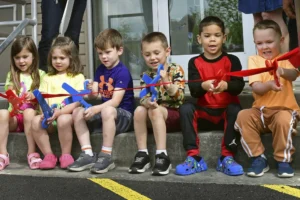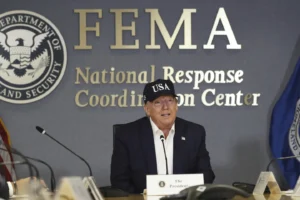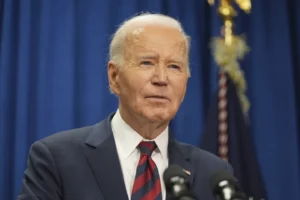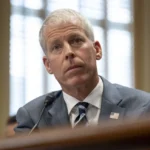LEGISLATIVE WATCH WYOMING: Governor Signs Law Establishing State Indian Child Welfare Act Task Force
Law comes as Supreme Court will deliberate fate of ICWA
- Published In: Politics
- Last Updated: Feb 20, 2023
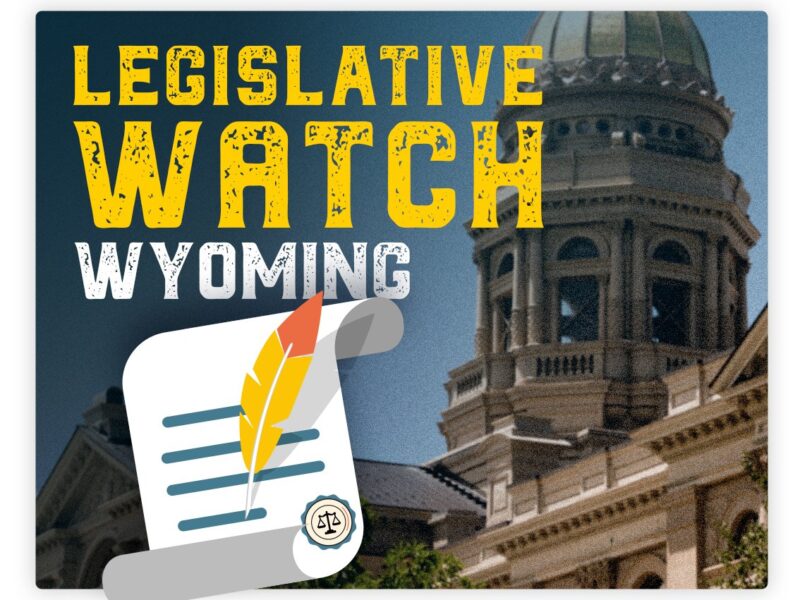
By Shen Wu Tan
Special to the Wyoming Truth
Gov. Mark Gordon on Saturday signed into law an act that establishes a state task force to study the federal Indian Child Welfare Act (ICWA) and Wyoming’s and other states’ legislation and protections as the act faces court challenges.
House Enrolled Act 19 creates a task force that would include the director or another representative from the Wyoming Department of Family Services, a county or prosecuting attorney appointed by the governor, a private attorney who is familiar with family law and ICWA, two people recommended by the Eastern Shoshone Business Council, two individuals recommended by the Northern Arapaho Business Council, two representatives appointed by the speaker of the House and two senators appointed by the president of the Senate.
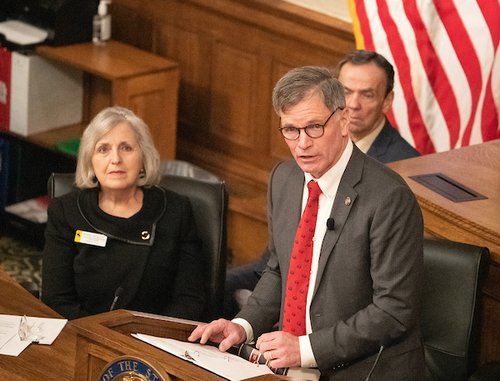
Sergio Maldonado, a member of the Northern Arapaho Tribe, is pleased that the task force has been set up.
“I truly hope the state and this body of people representing both tribes, an administrative body, are going to look at all the variables surrounding this act, especially with respect to the Wind River Reservation, in an objective manner….,” Maldonado told the Wyoming Truth. “I really hope this is going to move forward, that something good can happen and that at least…we see the light of day in saving our children.”
As outlined in the law, the task force must consult with experts in child welfare and ICWA procedures and develop legislative recommendations to integrate protections and procedures of the federal act into state law. The task force has until July 1, 2024 to report its findings and recommendations to the governor, the joint judiciary interim committee and the select committee on tribal relations.
The act also appropriates $40,000 to compensate non-legislative members and $40,000 to compensate legislative members of the task force from the general fund for salary, mileage and per diem. The appropriation starts with the effective date of the act and expires June 30, 2025.
The governor’s office could not be reached for further comments about the act on Sunday.
The new law arrives as the U.S. Supreme Court is expected to rule on the federal Indian Child Welfare Act later this year. The Supreme Court heard arguments in 2022 for Brackeen v. Haaland, in which several prospective adoptive parents and the state of Texas are challenging the Indian Child Welfare Act.
“There is a case pending in the U.S. Supreme Court, which might overturn the Indian Child Welfare Act, and if it does so, we are taking steps to provide a little bit of a bridge and some certainty on what would happen, you know, who has jurisdiction, tribal court or state court, when it comes to custody matters involving Indian children,” Sen. Affie Ellis (R-Cheyenne) told her fellow senators on the floor earlier this month while presenting the bill.
In 1978, Congress passed the law in response to the removal of Native American children from their homes by child welfare agencies and their placement into homes with no tribal connections. The ICWA provides guidance for cases of child abuse and adoption of Native American children; it also establishes a preference for the children to be placed with extended family members or with Native American foster or adoptive families.
State child welfare and private adoption agencies removed an estimated 25% to 35% of all Native American children from their homes, research has found. Of those, about 85% were placed outside of their families and communities before ICWA was enacted in 1978, according to the National Indian Child Welfare Association.
D. Lynette St. Clair, a linguist and member of the Eastern Shoshone Tribe, previously told the Wyoming Truth that society isn’t helping Native American children by placing them in non-native homes.
“As a language advocate, I think it’s really important that our babies be placed in homes that reflect their own values and Indian culture,” she said.
Korin Schmidt, director of Wyoming Department of Family Services, told a House committee last month that she estimates her department handles about 30 ICWA cases at any given time. The state family services department currently complies with ICWA through contracts with the Northern Arapaho and Eastern Shoshone Tribes.
The legislative service office will staff the task force, which will end its work on Dec. 31, 2024.




